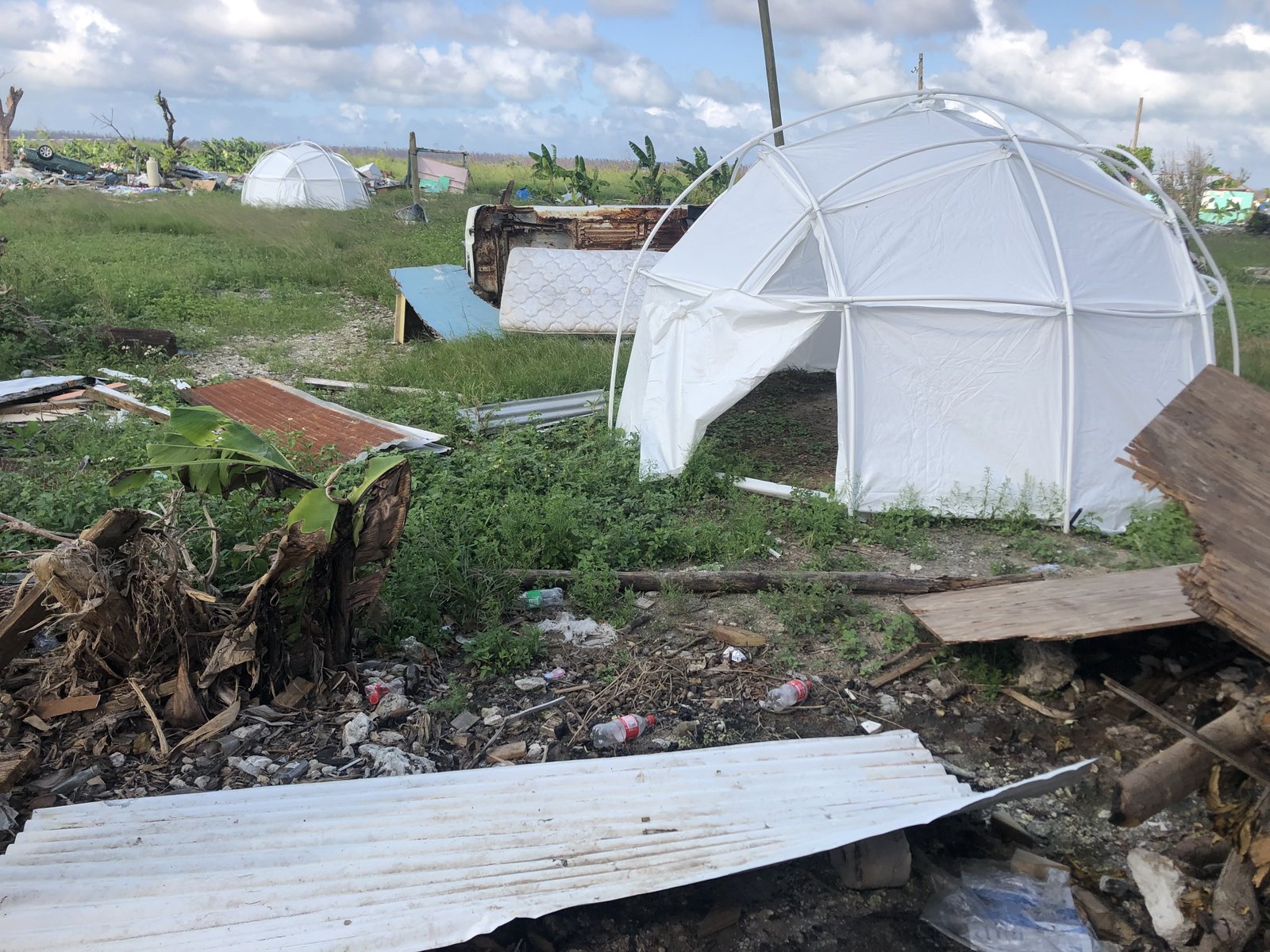NASSAU, BAHAMAS – The government has established a security checkpoint at the entrance of one shantytown community in Abaco.
According to residents, officers from the Royal Bahamas Defence Force and Department of Immigration are screening people and cars as they enter and exit Farm Road, a corridor that leads to the Farm shantytown.
Initially, the operation was described as a measure to prevent the flow of building supplies and tents into the community; however, residents say several people have been arrested.

The exercise has been ongoing for the past two weeks, and is a constant source of anxiety for residents in those areas as government rhetoric over the fate of the unregulated community stokes deportation fears.
When Eyewitness News Online visited the area last month, 13-year-old resident Rihanna Nervillien was hopeful about the re-opening of school, and with it some measure of normalcy in the wake of deadly Hurricane Dorian.
However, she said she has become increasingly concerned in recent days as residents get arrested by officers, and officials announce their intention to clear the debris-filled area.
Two men were arrested last week for driving without a license, and three other men on Sunday, she said.
The three men were reportedly released, and have returned to the community, because they held work permits.
Nervillien has lived in Farm Road all her life.
Her mother Judith Belice-Delhomme, 42, has lived in Abaco for 22 years, and her work permit expires in June next year.
“I think those who don’t have work permit, they worried,” Nervillien said.
“Us, we heard they are going to break down the houses. We were worried because we don’t know what is our next step.”
“I feel bad if they deport my mommy,” she continued.
“I don’t want to go Haiti. It’s really tough for people there.”

Last week, Public Works Minister Desmond Bannister told Parliament contractors commissioned to clear down the debris from the shantytowns on Abaco are waiting to get into The Farm but can’t because some 75 families remain.
A Supreme Court injunction blocks the government from evicting shantytown residents in Abaco, and New Providence.
The injunction handed down by Justice Cheryl Grant-Thompson last year also blocked the government from demolishing shantytown structures.
The government is expected to make an application to lift the court injunction.
At a mention hearing last Friday, government attorney Kayla Green-Smith advised the court of a pending application but did not give further details.
A date has been set for December 13 to give further directions on the matter.
Yesterday, Immigration minister Elsworth Johnson said he could not confirm or deny whether his officers were involved in the checkpoint.
“I cannot confirm or deny,” he said.
“There are any number of covert and/or overt operations conducted by the Immigration department. Some of them are being conducted with national agencies, whether it be the police, defense force, or Customs Department.
Johnson continued: “There are also transnational covert and overt operations with international partners. Every operation being conducted are being conducted within the bounds of the law.
“If anybody is in the Bahamas and they are here not in accordance with the immigration laws and regulations, they are to be concerned. If they are here legally, no problem.”

Several international relief agencies have expressed concern over the resumption of immigration enforcement in storm-ravaged areas, citing protection risks and barriers to access aid.
In a revised action plan last week, the International Federation of Red Cross and Red Crescent Societies (IFRC) detailed urgent protection risks over the situation of undocumented Haitian migrants in the country that have reportedly heightened in the wake of the monster storm.
“An entire community of people who already had a contentious history with The Bahamian government is now homeless and, in some cases, face an increasing fear of deportation,” the IFRC plan read.
“The number of undocumented Haitian displaced in government shelters is low; the assumption is that those who have made it to Nassau are living in informal settlements and are fearful of accessing much needed services.
“Many Haitians have reported no safety net of relatives, as they also lived in the informal settlements obliterated by the storm.”
For his part, Johnson said yesterday he did not see international agencies confronting the root of the migratory flow from Haiti.
He stressed immigration efforts protected not only the country but the individual migrant from risk of exploitation.

Johnson pointed to the country’s international obligation to protect migrants, specifically women and children, adding it was unclear how many Haitians died at sea on sloops headed for The Bahamas.
“What we are doing are within the bounds of the law,” he said.
“Officers are being told to conduct affairs without fear, favor, affection, or ill will, and they are to be guided by rule of law and our international human obligations while respecting the dignity of the human person.”
Johnson said: “We are on the lookout for human traffickers, we are not allowing in gun traffickers, or economic migrants, we are encouraging everyone to come to the Bahamas in the right way. It protects the individual.”
“I don’t see international agencies really confronting root of the problem what are the propensities for people to move.
Johnson added: “I think international agencies must show much more intestinal fortitude and encourage countries with might and money to do something, and to do something that is meaningful.”






